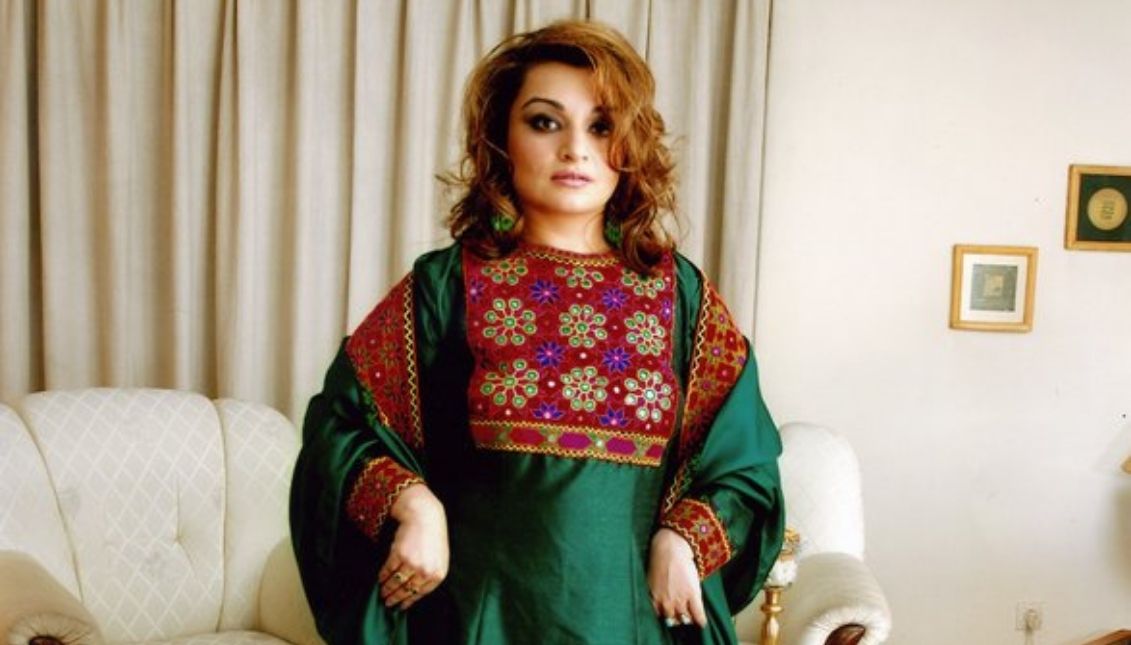
Dr. Bahar Jalali shows off her typical Afghan garb. Photo: Twitter- @RoxanaBahar1
Afghan women protest against Taliban with colorful clothes
Women in Afghanistan have risen up against the mandatory wearing of the black burqa on social media.
Since the Taliban took full control of Afghanistan, they have issued a decree calling on female university students to cover their bodies completely and most of their faces, in a return to Afghan tradition.
Historian Dr. Bahar Jalali did not agree with the imposition and started a campaign that has gone viral that has Afghan women showing off the diversity of their traditional garb through posting photos on social media.
Using the hashtags #DoNotTouchMyClothes and #AfghanistanCulture, women in Afghanistan have begun to claim their colorful traditional dress as an act of protest against a Taliban regime that seeks to make women wear the traditional black burqa.
Jalali started the campaign because one of her "biggest concerns is that Afghanistan's identity and sovereignty are under attack," she told the BBC.
To start the movement, Jalali posted a photograph of herself on Twitter wearing a green dress, writing that "this is the culture of Afghanistan."
This is Afghan culture. I am wearing a traditional Afghan dress. #AfghanistanCulture pic.twitter.com/DrRzgyXPvm
— Dr. Bahar Jalali (@RoxanaBahar1) September 12, 2021
Human rights activist Spozhmay Maseed, supported Jalali's motion and posted a photograph of herself in a fuchsia dress with an embroidered yellow veil. The photograph caption read: "This is our authentic Afghan dress. Afghan women wear such colorful and modest attire. The black burqa has never been part of Afghan culture."
This is our Afghan authentic dress. Afghan women wear such colorful and modest attires. The black burqa never has been part of the Afghan culture. #FreeAfghanistan pic.twitter.com/v9LIbcvklG
— Spozhmay Maseed (@spozhmey) September 12, 2021
The typical dresses of the country are unique, with handmade embroidery and colorful designs, small mirrors carefully placed around the chest, long, pleated skirts, perfect for twirling during the Attan, Afghanistan's national dance.
Some women sport embroidered hats, others heavy headdresses, depending on the region of Afghanistan.
"And, of course, a lot of these dresses are meant for women to dance in, you know, to be alive and lively. It's really the polar opposite of what we saw at the pro-Taliban women's event, where you see the women completely invisible. It's like they're not even there. I found it very strange, very contrived," Jalali told the BBC.
Before the Taliban came to power, most Afghan women wore different styles of headscarves, ranging from loose to tight around the head and body. Now, she said, all women are expected to wear a tight-fitting veil with wrap-around layers.
"That looks more like what a judge wears in the United States, something that has no shape at all. And you really can't have this diversity of headscarves anymore. It has to be a really tight scarf that covers the whole head — no hair showing — before you could show your hair, it wasn't a big deal."
Jalali said women now fear the consequences of deviating from Taliban dress codes. Under the Taliban regime in the 1990s, women were sometimes beaten or even executed for even minor dress code violations.
"Dress is a powerful symbol of national identity," Jalali said in closing to legitimize her order of peaceful protest by the country's women.











LEAVE A COMMENT:
Join the discussion! Leave a comment.